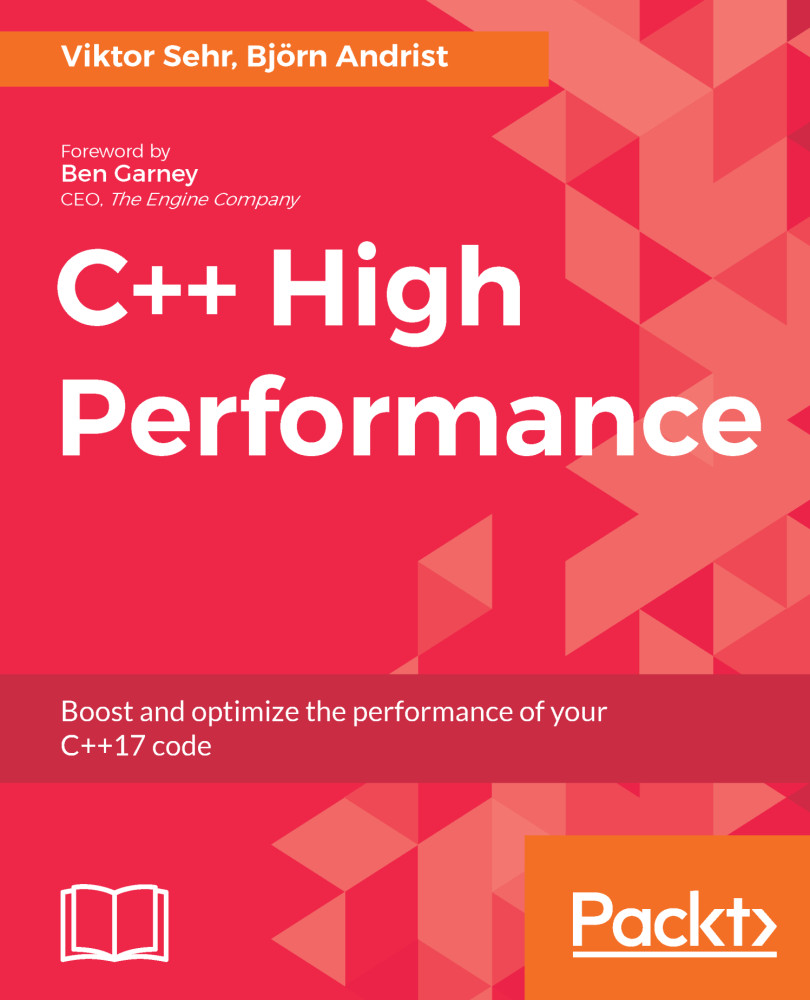Move semantics is a concept introduced in C++11 which, in our experience, is quite hard to grasp even by experienced programmers. Therefore, we will try to give you an in-depth explanation of how it works, when the compiler utilizes it, and, most importantly, why it is needed.
Essentially, the reason C++ even has the concept of move semantics, whereas most other languages don't, is a result of being a value-based language as discussed in Chapter 1, A Brief Introduction to C++. If C++ did not have move semantics built in, the advantages of value-based semantics would get lost in many cases and programmers would have to perform one of the following trade-offs:
- Performing redundant deep-cloning operations with high performance costs
- Using pointers for objects like Java do, losing the robustness of value semantics
- Performing error-prone swapping operations...


